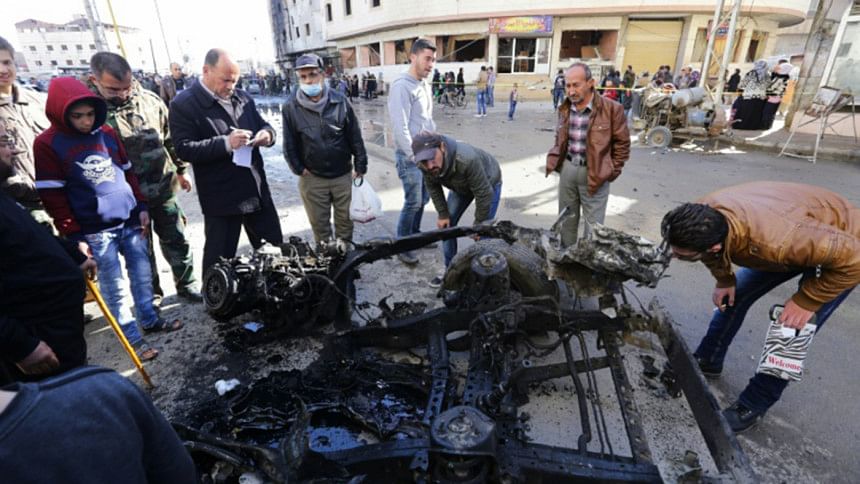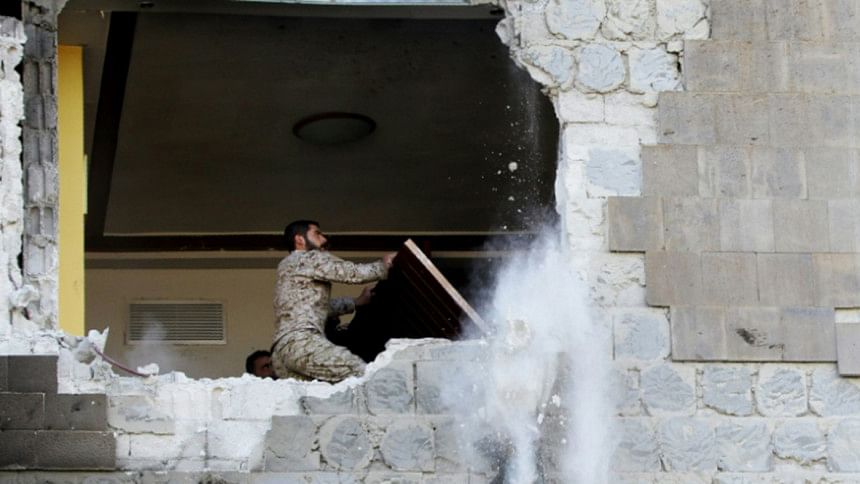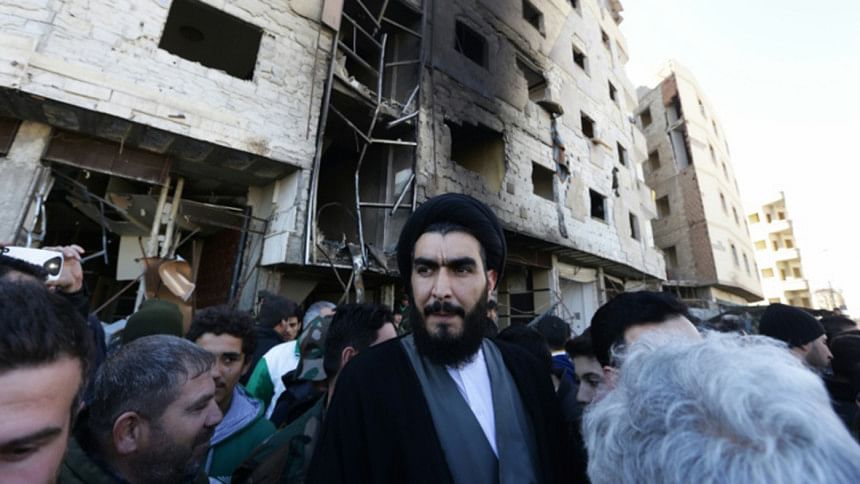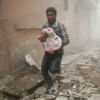IS bombings near Syria Shiite shrine kill 50

Bombings claimed by the Islamic State group killed more than 50 people and wounded dozens on Sunday near a revered Shiite shrine outside the Syrian capital Damascus.
The blasts, which came as the UN's Syria envoy struggled to convene fresh peace talks in Geneva, tore a massive crater in the road, overturning and mangling cars and a bus and shattering windows.
Syrian state media said more than 50 people had been killed in three blasts near the Sayyida Zeinab shrine, with some 100 people wounded.
Official news agency SANA said the first blast was caused by a car bomb that detonated at a bus station near the shrine.
It said two suicide bombers then set off their explosive belts when people gathered at the scene.
An AFP photographer said the explosions damaged the facade of a nearby building, scorching all of its six storeys.
Sayyida Zeinab, south of Damascus, contains the grave of a granddaughter of the Prophet Mohammed and is particularly revered as a pilgrimage site by Shiite Muslims.

It has continued to attract pilgrims from Syria and beyond, particularly Shiites from Iran, Lebanon, and Iraq, throughout the nearly five-year war.
Sunni Muslim extremist groups such as IS consider Shiites to be heretics and have frequently targeted them in attacks.
In the aftermath of Sunday morning's attack, smoke rose from the twisted carcasses of more than a dozen cars and a bus, as ambulances ferried away the wounded and firefighters worked to put out blazes.
In a statement circulated on social media, IS claimed responsibility for the attacks, saying two of its members had detonated suicide bombs.
"Two soldiers of the caliphate carried out martyrdom operations in a den of the infidels in the Sayyida Zeinab area, killing nearly 50 and injuring around 120," it said.
The area around the shrine has been targeted in previous bomb attacks, including in February 2015 when two suicide attacks killed four people and wounded 13 at a checkpoint.
UN envoy meets opposition
Also that month, a blast ripped through a bus carrying Lebanese Shiite pilgrims headed to Sayyida Zeinab, killing at least nine people, in an attack claimed by Al-Qaeda affiliate Al-Nusra Front.
The area around the shrine is heavily secured with regime checkpoints set up hundreds of metres (yards) away to prevent vehicles from getting close.

According to the Syrian Observatory for Human Rights, members of Lebanon's powerful Shiite militant group Hezbollah are among those deployed at the checkpoints.
Hezbollah is a staunch ally of Syria's President Bashar al-Assad and has dispatched fighters to bolster his troops against the uprising that began in March 2011 with anti-government protests.
Early on, the group justified its intervention in Syria by citing the threat to Sayyida Zeinab.
The Britain-based Observatory said 58 people were killed in Sunday's blasts, among them 20 civilians, including children.
It also said 25 non-Syrian Shiite militants were among the dead, without specifying their nationalities.
More than 260,000 people have been killed in Syria's conflict, which has also displaced upwards of half the country's population internally and abroad.
It has evolved into a complex, multi-front war involving rebels, jihadists, regime and allied forces, Kurds and air strikes by both government ally Russia and a US-led coalition battling against IS.
In a new effort to find a political solution to the conflict, UN Syria envoy Staffan de Mistura has invited regime and opposition delegations to Geneva for fresh talks.
But while the opposition agreed to travel to Geneva after days of delays, it has so far refused to engage in indirect talks with the government.
It is demanding that UN Security Council resolutions on ending sieges and protecting civilians be implemented first.
On Sunday, De Mistura held informal talks with the main opposition delegation, saying afterwards that he remained "optimistic and determined".
The Damascus delegation's chief negotiator, Syria's UN envoy Bashar al-Jaafari, accused the opposition of being "not serious" about the talks.

 For all latest news, follow The Daily Star's Google News channel.
For all latest news, follow The Daily Star's Google News channel. 








Comments